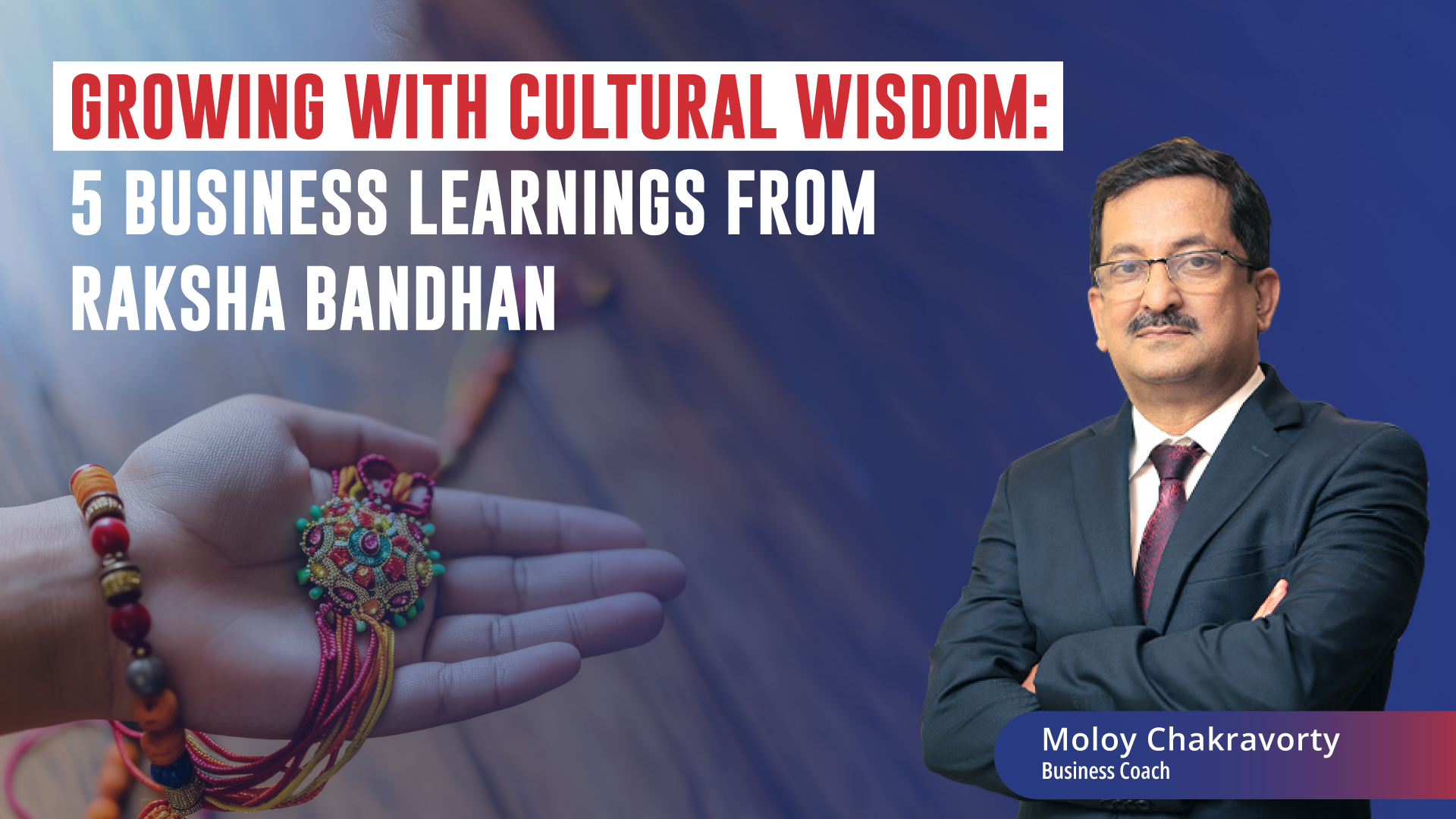
Growing With Cultural Wisdom: 5 Business Learnings from Raksha Bandhan
Raksha Bandhan is a celebration of a sacred bond between brother and sister, a promise of protection, trust, and lifelong commitment. But what if this ancient festival holds the blueprint for modern entrepreneurial success?
In fact, in a country like India, where family-owned enterprises contribute 79% to the GDP, the parallels between Rakhi's core values and sustainable business practices are striking. The sacred thread that binds siblings mirrors the invisible bonds that hold successful businesses together: unwavering trust, mutual commitment, and the promise to stand by each other through challenges.
The Trust Paradox Every Entrepreneur Must Solve
Indian business landscape presents a fascinating paradox. While Indian businesses enjoy a remarkable 74% trust rating—significantly higher than the global average of 56%—a critical "trust gap" persists. Studies suggest that 90% business executives think customers highly trust them, yet only 30% of consumers actually do. This disconnect is a much-needed wake-up call for next-gen entrepreneurs who believe trust is automatically granted rather than meticulously earned.
That’s why successful businesses need to weave stronger connections with their stakeholders. The festival of Rakhi teaches us that trust isn't a one-time exchange—it's a continuous commitment that requires nurturing, transparency, and consistent action.
The Family Business Legacy: Commitment Across Generations
The entrepreneurial spirit in India runs deep through family lines. More than 80% of Indian businessmen trust the next generation to manage family wealth, there's clearly a strong foundation of intergenerational trust. However, the sobering reality is that only 7% of heirs feel obligated to join the family business, highlighting evolving attitudes toward commitment and succession.
This generational shift mirrors the broader challenge entrepreneurs face: How do you build commitment that transcends individual interests? The answer lies in understanding that true commitment, like the bond celebrated in Raksha Bandhan, goes beyond obligation—it's about shared vision, mutual respect, and collective purpose.
Research consistently shows that employee commitment, particularly normative (duty-based) and emotional commitment, significantly boosts business performance. This impact extends to increased engagement, motivation, and creative capacity among employees, directly benefiting organizational results. The quality of a leader's commitment doesn't just influence their own success; it becomes the foundation upon which entire ventures are built.
Diversity as Strategic Advantage: Unity in Differences
Raksha Bandhan transcends religious, cultural, and linguistic boundaries, celebrating unity in diversity. This principle isn't just culturally significant—it's economically powerful. Companies with high racial and ethnic diversity are up to 35% more likely to see above-average financial returns, while those with diverse management teams experience up to 25% greater profitability and are 1.7 times more likely to be innovation leaders within their sector.
Perhaps most compelling is that diverse teams make better decisions 87% of the time. In today's complex business environment, this isn't just an advantage—it's a necessity. Entrepreneurs who embrace diversity of thought, background, and perspective don't just create more inclusive workplaces; they build more resilient, innovative, and profitable businesses.
Building Resilient Relationships: The Entrepreneur's Sacred Thread
Like the rakhi that symbolizes protection and care, entrepreneurial success is built on relationships that withstand challenges. In an era where businesses are the most trusted institutions—even surpassing governments and media—entrepreneurs have both an opportunity and a responsibility to maintain this trust.
The key lies in understanding that business relationships, like family bonds, require ongoing investment. This means:
- Transparent Communication: Moving beyond the trust gap by ensuring your actions align with your promises
- Long-term Thinking: Building relationships that survive market downturns, competitive pressures, and changing circumstances
- Mutual Value Creation: Focusing not just on what you can gain, but on what you can give
The Purpose-Driven Future
As we look toward the future of Indian entrepreneurship, the lesson from Raksha Bandhan is clear: sustainable success comes not from transactional relationships but from transformational ones. It's about building businesses that don't just generate profit but create lasting positive impact.
The festival reminds us that our responsibilities extend beyond immediate stakeholders to the broader community. In a world where purpose-driven businesses consistently outperform their profit-only counterparts, this cultural wisdom becomes a competitive advantage.
Your Entrepreneurial Commitment
As you celebrate Raksha Bandhan this year, consider it an opportunity to renew your entrepreneurial commitments:
Cash flow isn’t a sign of struggle. It’s a sign of control.
- Audit Your Trust Quotient Are you part of the 90% who think customers trust you, or are you actively measuring and improving real trust levels?
- Strengthen Your Commitment Culture: How are you fostering both normative and emotional commitment within your organization?
- Embrace Strategic Diversity: Are you leveraging the 35% financial advantage that comes with diverse teams?
- Build Resilient Relationships: What systems do you have in place to maintain stakeholder relationships through challenging times?
- Define Your Purpose:Beyond profit, what legacy are you building for future generations?
The sacred thread of Raksha Bandhan isn't just a symbol—it's a reminder that the strongest businesses, like the strongest relationships, are built on trust, commitment, diversity, resilience, and purpose. In an economy where family businesses dominate and trust remains the ultimate currency, these aren't just nice-to-have values—they're essential business strategies.
This Raksha Bandhan, tie your entrepreneurial success to these timeless principles. Because in the end, the businesses that last aren't just those that make money—they're those that make a difference.
Moloy Chakravorty
Founder - Beyond Red Ocean Consulting
Executive Director - Network In Action, West Bengal
Author - Business Alchemy
Business Coach | Entrepreneur | Keynote Speaker
